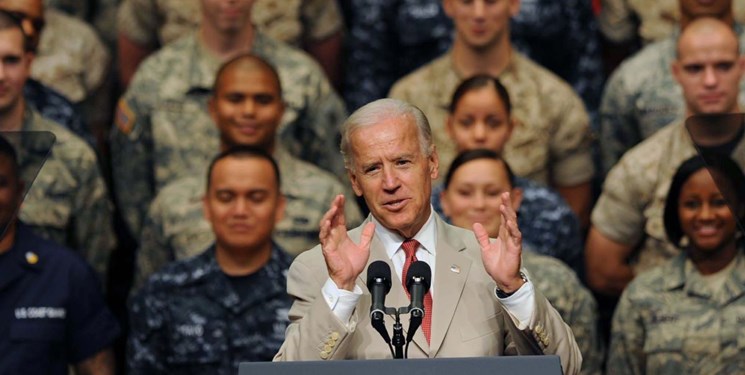Following the victory of Joe Biden and the change of the US government on the 20th of January 2021 Biden’s policies in various fields have been considered by many experts and policymakers in the country. Based on the positions of key figures in Biden’s government, it can be said that the US Middle East policy towards the Donald Trump era continues in some areas and changes in others.
As a Democratic leader and vice president of Barack Obama, Biden has a look at the international system that previous presidents, including Barack Obama, had. A look at Biden’s past positions during the Obama presidency, as well as recent statements by him and his close advisers, reveals the fact that trying to strengthen the international system and return to the multilateral policy will be Biden’s grand strategy in the international arena.
At the regional level too, the Middle East will be one of Biden’s most important areas of interest. Despite repeatedly emphasizing his support for Israel, Biden opposes some of Trump’s unilateral actions on the issue of peace, the annexation of more territories in the West Bank, and the return of the United States to a policy of supporting the two-state plan.
Regarding Saudi Arabia, Biden has taken a critical approach to Washington’s longtime partner in the Persian Gulf during his presidential campaign. Members of the US Congress, especially Democrats, have repeatedly called for an end to Saudi Arabia’s support in the Yemeni war, both individually and collectively, in the form of individual bills, and have blamed Muhammad bin Salman for the assassination of Saudi journalist Jamal Khashoggy.
Despite all the differences between Turkey and the United States during Trump’s presidency, the continuation of Trump’s presidency was favorable to Turkey. The commitment and insistence of the US Congress to put pressure on Turkey on the one hand and the existence of numerous unresolved issues in relations between the two countries on the other hand and the greater sensitivity of the Democratic Party to Turkey’s policies despite Donald Trump’s indifference are three main factors causing Ankara’s concern about Biden presidency. In general, Ankara officials are well aware that their friendly policies towards Russia and their critical and even hostile policies towards the European Union, which Trump favored, as well as their Middle East policies, will not be met with Biden in power On the other hand, Biden has explicitly spoken of the need to oust Erdogan. Therefore, Turkey is not waiting for favorable relations with the United States under Biden; In the meantime, however, the pragmatism and flexibility of Turkish foreign policy should be considered as a determining variable.
Biden has long been heavily involved in US policy in Iraq. As a senator, he supported George W. Bush’s 2003 invasion of Iraq, but opposed the increase in US troops in Iraq as attacks on US troops intensified in 2007. Biden is one of the main proponents of a strategy called “extra counter-terrorism”. This approach emphasizes the fight against terrorist networks in foreign countries, using small groups of US Special Forces and offensive air strikes instead of deploying large numbers of troops. This counter-terrorism strategy is inspired by the Obama administration’s policy of fighting jihadists and other militant groups around the world, including in Pakistan, Afghanistan, Iraq, West Africa, the Horn of Africa, and the Arabian Peninsula. This type of operation also included direct targeting of US-based militants, such as Anwar al-Awlaki.
In the meantime, one of the most important Middle East issues for Biden will be Iran. According to Biden and other key figures, there is no doubt that Biden will return to the nuclear deal, and there are many reasons why the United States will return to the Joint Comprehensive Plan of action. But in the meantime, Biden also expects talks with Iran on regional and missile issues; because, first of all, Biden knows that he has the support of Europe, the countries of the region, and possibly even China and Russia, for talks in these areas.
Second, the American elite has come to the conclusion that the United States, influenced by Obama’s experience of emphasizing multilateralism and influenced by Trump’s experience of unilateralism, is able to impose tough and effective sanctions on any country in the shortest possible time. Therefore, they are not worried about the fact that if the sanctions against Iran are lifted, Tehran will not be willing to talk in other areas. It was in this regard that Biden said in a statement that Tehran officials know that the means of sanctions against that country are always available. Therefore, in order to prove their good faith, the return of the United States to the UN Security Council is inevitable, and they are not worried about lifting the sanctions.










0 Comments